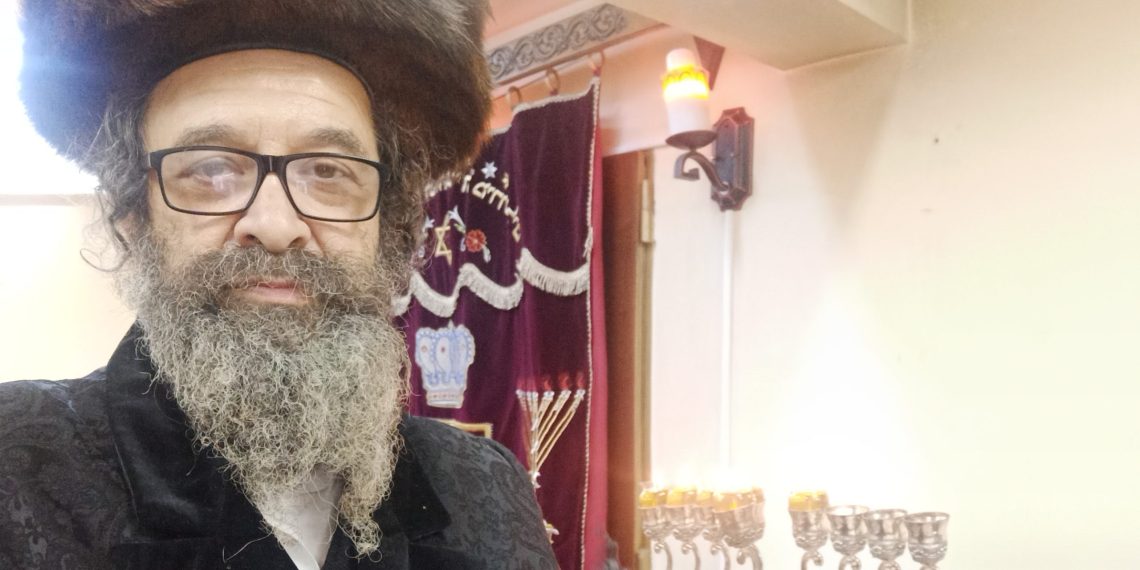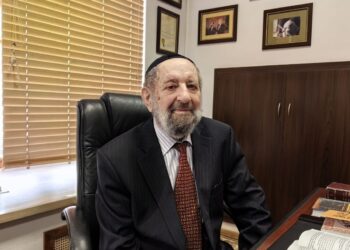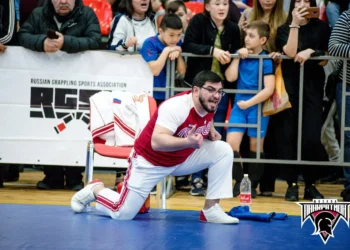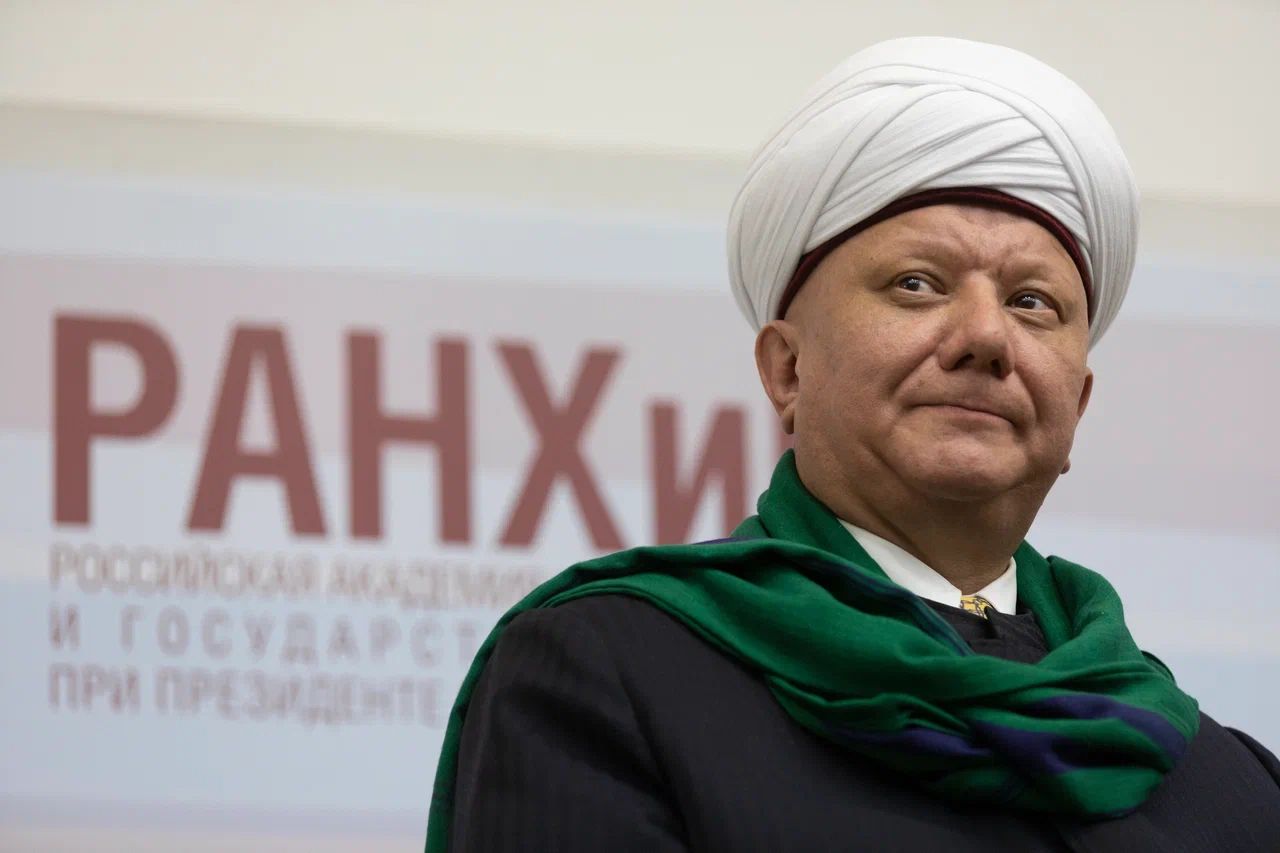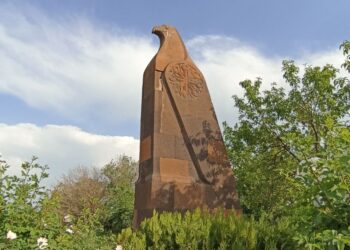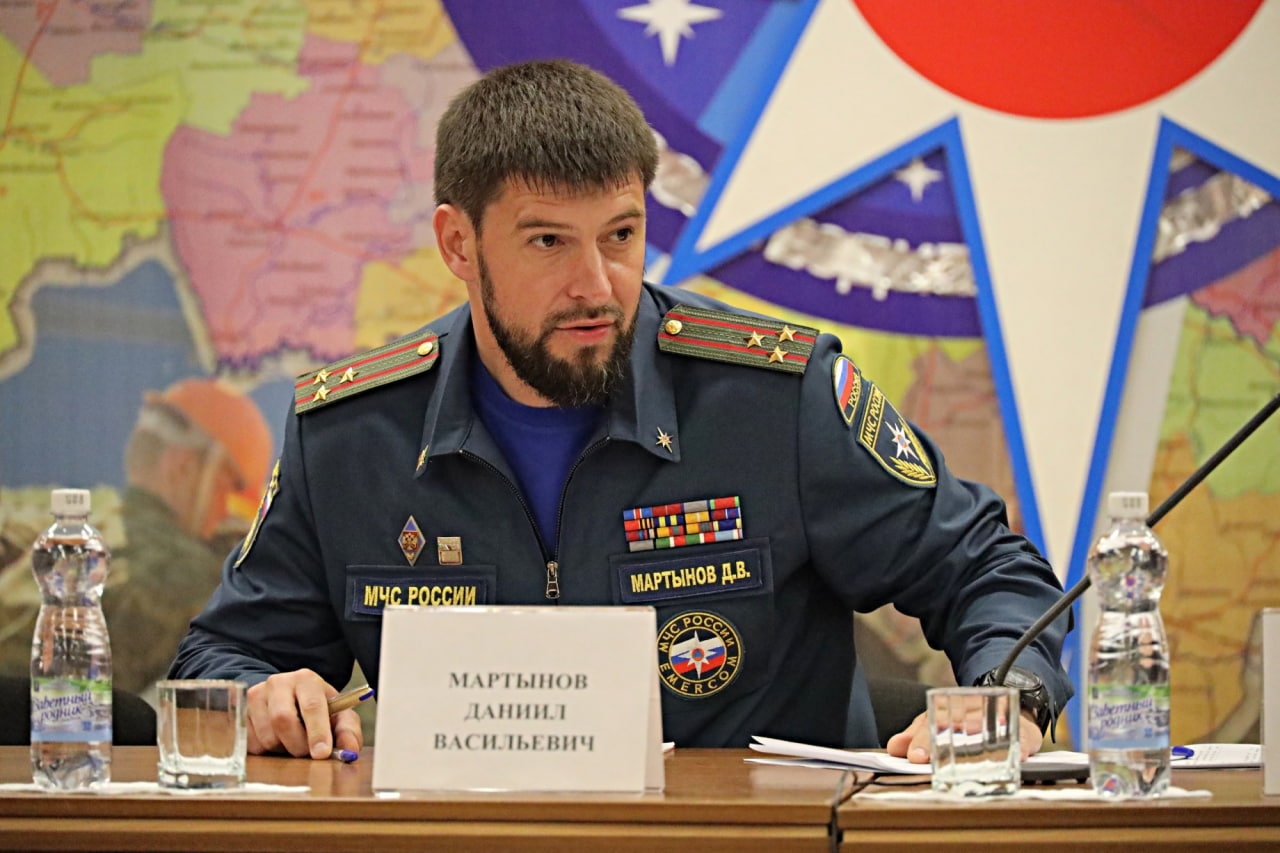YEREVAN (Realist English). Chief Rabbi of Armenia Gershon Meir Burshtein answered these and other questions of the Realist Information Agency.
Rav Gershon, you arrived in Armenia in a difficult post-war period as an envoy of the Lubavitcher Rebbe. Why did you choose Armenia as the place of your ministry?
Gershon Meir Burshtein: I was born in Armenia and today I belong to a small number of the Jews who were born in Armenia not in mixed families. There are very few of those now. My parents arrived here in the early 1950s when my father became interested in why his own sister, who was evacuated from Odessa in early 1941, before the capture of Odessa, did not return to the Ukraine. My father, who himself fought in two wars, had been looking for her and found her. Unfortunately, in Odessa, after the war, none of his relatives survived.
The elder brother died in Sevastopol, my grandmother, his mother and his two sisters with their families were evacuated to Tashkent, but my father found out about all this much later, when he found his third sister Bella, evacuated to Yerevan. Arriving in Yerevan, my father was impressed by the respectful attitude towards the Jews. Moreover, at that time in Odessa, many people had already died and the memories of the dead brothers were very grievous. His sister at that time was the maitre d’hotel of the Yerevan Hotel.
Having been in Yerevan, he was impressed by the lack of anti-Semitism that he had to deal with in the Ukraine. Despite the fact that Odessa was multinational, there were Jewish pogroms. So my father stayed in Armenia. And I was honored to be born in Yerevan (smiles). At the same time, Yiddish was present in my educational process from early childhood – in the form of songs. For my father, Yiddish was his mother tongue. The first letters I learned were Yiddish. My father taught me the language and letters.
My father took a liking to Armenia. That’s why we stayed here. My Jewish worldview and upbringing was influenced both by Odessa, with its coloring and the Jewishness of my aunts, and Moscow, with the Jewish coloring of my mother’s parents: it was an active and strong Jewish family. Between themselves, family members spoke mostly Yiddish. And at the age of 6, my father deliberately sent me to the Armenian kindergarten named after Nelson Stepanyan to “know the language of the people who treat us with respect.”
A year after visiting the kindergarten, when I visited my grandmother in the summer, she said: “vemen hastu mir gebrakht? armanish eyngl?…(Who did you bring me? Armenian boy” transl. from Yiddish) (laughs) – since I got an Armenian accent. It was a good grandmother’s joke. Then, when I spent my summer holidays in Odessa, I began to have an Odessa accent… I remember Odessa, where it was possible to freely address adult Odessa residents in Yiddish, regardless of their nationality, and they answered in Yiddish. I’m talking about the period between 1965 and 1969.
I studied at school #132 with a mathematical bias. At that time, at least 2 Jewish children studied in every school in Yerevan, not counting teachers. By the way, my Russian teacher was Jewish. She told me: “Grishechka, you understand that I can’t always give you fives, because everyone will say that I am shielding a Jew.” But I studied for fives, only occasionally got fours so that there would be no suspicion (smiles).
My home and school were not far from the Institute of Mathematical Machines named after S.N. Mergelyan (YerNIIMM – Realist), where there was a large number of engineering and technical workers of Jewish origin. Therefore, there were also many Jewish children in the school. In childhood and adolescence, I comprehended many things in Jewry both through the broadcasts of the Kol Isroel radio station and from the stories of my father.
In Soviet times, two publications popular among the Jewish community (Sovetish Heimland and Birobidzhaner Stern) were published, which helped many in learning Yiddish. They served as a life-giving channel for many Jews to study Jewishness and self-understanding. In the 1990s, I was one of the initiators of the creation of the Jewish community in Armenia. Back in the second half of the 1980s, during the period of “perestroika”, after the bulk of the unmixed and ideologically ready to leave for Israel left Armenia, there was still a part of the guys involved in the “home-based Jewry” in Yerevan, which took place since the late 1960s, 1970s and early 1980s.
Soviet reality did not allow open commitment to the Jewish religion, Tradition, open love for Israel, etc. These young people became the initiators of the legalization of Jewish life in Armenia. Among them were Igor Ulanovsky, Alexander Stolberg, Willy Weiner, Alexander Sheinin, a little bit of myself, and other guys were especially active. The first structure was called “Arev” – the Center for the Study of Jewish Heritage Culture. This is the Armenian – Jewish abbreviation, plus “arev” in Armenian means “sun”, and in Hebrew – “guarantor, warrantor”. By the way, soon Borukh Livshits (he was an actor of the chamber theater – Realist) would arrive in Yerevan, who, together with Anna Lifshits, was one of the first Soviet young Jewish religious families in Armenia.
Unfortunately, the structure we created was more initiated by the activity of the Jewish youth. Therefore, I proposed to transfer it to the mainstream of a purely Jewish interest. Not everyone then believed that it was possible to create a community. It was the second half of the 1980s: most of the unmixed Jewish families then left Armenia. “Perestroika” was already underway, and against its backgdrop, in 1986-1987, we began, as King Solomon said, “to collect stones” – literally bit by bit.
In 1991, within the walls of the medical institute where I worked, the first constituent assembly took place, at which Igor Ulanovsky and I were elected co-chairs of the community. Alexander Stolberg (founder of the Tkhiya Cultural Center of Armenia), Anatoly Truts (co-chairman of Tkhiya), Willy Weiner (transformed Tkhiya into Menorah), Alexander Sheinin, Alexander Dobin, Ethel Shvartsman and Rimma Feller also took part in the formation of the community. At that time I was already a religious person, I put on a kippah since 1987 and have not taken it off to this day. I preferred rather religious than Zionist thinking.
It was then that we organized the first Jewish school, it was very large – about 300 children. Then, as a result of the blockade, the outflow of Jews began: all this time I was in Armenia. An active role in Jewish life at that time was played by Willy Weiner, who was not yet known in Armenia as a composer, but was known as a musician and choir vocalist. He played an important role in the life of the cultural center.
The blockade was very serious – with no water, light or food. Airplanes were organized to take families out, and then I wrote a letter to New York to the Lubavitcher Rebbe asking him to bless me, which I sent through Rabbi Berl Lazar, who then arrived as an envoy in Moscow, to the synagogue called Mar’yina Roshcha.
In the letter, I asked where I should go – to America, where my middle brother lived, or to Israel, where my father already lived at that time. There was no mention of Armenia in the question – I no longer have anyone here. Then, having a medical education, I already knew how to circumcise and learned how to cut a bird according to all Jewish religious laws. These 2 things rarely go together. After the stroke, the Rebbe did not speak anymore.
The secretary read letters to him. The Rebbe used conventional signs to give an answer, which was then forwarded. On this Shabbat I was in Moscow. My friend Rabbi Moishe Goyberg offered to read siha for the health of the Rebbe. We spontaneously opened a page that spoke about the return of Moses to Egypt in order to lead the Jews out of there and help them come to the Almighty. And Moishe says to me: “It looks like an answer. Did you by any chance ask the Rebbe questions?” I said that I had a question where should I go. Moishe retorts: “You understand what he says to go to Armenia and help the Jews come to the Torah.”
At the end of Shabbat, we learned that the Rebbe had left this world. My teacher Rav Yitzhak Kogan left for America – all the rabbis left. Everyone left the synagogue. It was a feeling when the when the ground slipped from under your feet. The teacher returns and his first question to me is: “Can you recite kaddish (prayer for the departed)?”. He told me to say Kaddish for 7 days in the honor of the Rebbe, mourning like his son. I didn’t leave the synagogue for 7 days.
Before Shabbat, in order to raise the Rebbe’s soul to an even higher level, it was decided to read the entire Talmud throughout the day. And this is a huge number of volumes. They are divided into pieces by sectors. Rabbi Lazar said to call such and such a number or come to his office, where the necessary passage was given. I come there and I come across, what do you think, a passage on how to cut a bird. This was the Rebbe’s second remote reply about what I should be doing.
The first answer was that I should return to Armenia. And the second was that I had to cut a bird. Then, at the table during Shabbat, a young man approached me, not knowing who or what I was. After talking, he offered to help me buy a building for a Jewish school in Yerevan. He gave me his business card: it was Leonid Roitman. It was all part of one beginning. The Rebbe’s blessing has already begun to work.
And I returned to Yerevan, it was 1994. By this time, prices were no longer the same as in 1992, but everything happens from above. I find myself in an area where a man comes up on the street and asks: “Do you need a building?” He needed to sell urgently. They looked, it seemed to be all right, but the price that I could give for the building did not suit him.
The seller admitted that the Persians offered him 4 times more for it, but he said that he wanted Jews to be here. And he sold the building to me. This is how a building for a Jewish school appeared in Yerevan, and already in 1996 we celebrated the first Hanukkah, we lit a special ritual lamp – a nine-candlestick, with which we recorded our presence in Armenia no longer as guests. Then they handed me a certificate of the Chief Rabbi of Armenia and delegated as an envoy of the Rebbe.
How do Jews live in Armenia?
Gershon Meir Burshtein: Jews have been living in Armenia for a long time. Most of the Jews were so integrated that there were a lot of mixed families. Although my second wife, a Moscow Jew, returned to Moscow, because it was difficult for her to endure the hardships of life in Yerevan. May God grant her happiness in Moscow.
About 99% of the Jewish families who left Armenia went to Israel. You can count on the fingers of one hand the families that have left for the United States or Germany. Then a sharp article appeared in the “Aravot” newspaper with the following message: when it became hard in Armenia, the Jews left it. In response, I came up with an article where I explained that Jews were leaving for Israel at a difficult time, when Iraq was also restless. After all, the Jews were leaving for their homeland not in chocolate conditions, but in very serious ones. In the article, I also wished that in the process of the revival of Armenia, the Armenians would also return to their homeland.
I was born in Armenia and returned to it as a rabbi in order to revive Jewish thinking, self-determination, and work on the consequences of assimilation. Many members of the community, even adults, did not have Jewish upbringing, national self-determination, observance of Jewish laws, or assciation with the construction of the Third (Jerusalem) Temple. All this is the purpose of my stay in Armenia. Although the Jews say to each other during farewell, “Next year – in rebuilt Jerusalem!”, we in Armenia do not consider ourselves guests here, we are an integral part of Armenia. Yes, we are few, but in terms of influence among the communities of national minorities, the Jewish community is quite significant.
This was always felt during meetings in the Council of National Minorities under two presidents, where I was a member for 15 years – from 2000 to 2015. And now, when the presidential form of government has changed to a parliamentary one, a separate structure under the government is doing this. I am not yet a member of the Council, but I will soon enter it again to defend the traditionally Jewish position related to Jewish culture, tradition and religion.
Unfortunately, people outside of Armenia are hardly aware of the contribution of the Jewish community to the development of Armenian society. What or who should they know more about?
Gershon Meir Burshtein: This is a global issue. Jews showed themselves in such areas as theater, art and science. Even before the “perestroika” there was a large pleiad of Jewish doctors and scientists in Armenia. Among the prominent representatives of the Jews was the famous mathematician, academician Igor Zaslavsky. I would also like to note the contribution of the botanist, academician Georgiy Fayvush, who participates very worthily in the life of the Jewish community of Armenia and teaches Hebrew. God bless him! We have a famous composer, head of the chamber choir Willy Vainer, who was born in Armenia and takes an active position in the life of the community.
There were lots of opportunities that we proposed to integrate and attract to Armenia to improve both the economic and strategic situation. Unfortunately, since 1991 there have been no meetings, to which we tried to bring the first leadership of Armenia, headed by President Levon Ter-Petrosyan. We proposed rapprochement between Armenia and Israel at the levels that Israel has with the Azerbaijani side today.
The first country visited by envoys from Israel in the post-Soviet period was Armenia. But then neither the President nor Yerevan Mayor Ambartsum Galstyan found time to meet with these people for some reason of their own. And these people left for Azerbaijan and signed agreements that are still working today. Although even after that, the envoys of Israel made efforts to bring Armenia and Israel closer. And not only at the level of agricultural programs, but also at the level of more serious programs. For my part, I hope that wisdom should prevail.
An understanding should come that there is experience that allows us to resist the pressure of many countries and prove the right to live on our ancestral land. I hope that over time this bridge between Armenia and Israel will work. More than 15 years ago, I wrote a long article in the Third Force newspaper about approaches to the revival of Armenia and Israel. There I said that this world stands on two legs – one in Israel, the other in Armenia, and the more stability in these countries, the more stable it will be all over the world.
Why is it so exactly?
Gershon Meir Burshtein: Mount Ararat is the place where Noah’s Ark moored – this is the point where new life is reborn after the Flood. And Jerusalem is the point where new life will be reborn. There was the First Temple, the Second Temple, and there will be the Third Temple, which in Jewish knowledge is listed as the Temple for all peoples. That is, this is also a kind of point of the new world, which is also called the messianic era – the era of recognizing the Creator as the only beginning that created everything and to which everything is subject. Therefore, what is happening in Armenia and Israel in terms of preserving or not preserving peace is very important. At points where life is reborn, there must be a special understanding of the values of life and peace. When peace sets in within the individuals and peoples living there, it spreads to the entire planet. These are not just beautiful words, this is my opinion, which is supported by many spiritual leaders who know deeply the structures of the world. So it will be. With God’s help, we can bring this world to the calm and balance that the world should live in.
In your interview ten years ago, you literally stated the following: in the 20th century, the Armenian and Jewish nations understood what people’s indifference means, “because during both the Armenian Genocide and the Holocaust, the world remained silent, the consequence of which was the genocide.” Why do you think the world is still silent when faced with atrocities? Are Jews and Armenians themselves to blame for this?
Gershon Meir Burshtein: Yes, during the Holocaust and the Armenian Genocide the world was silent, there is a lot of Armenian and Jewish blood on the historical hands of these countries. Why are they silent? This question was brilliantly answered by former Chief Rabbi of Israel Yona Metzger during his visit to Armenia, where he visited Tsitsernakaberd and met with the Armenian Catholicos. On behalf of religious Jewry, he declared that what happened to the Armenian people is genocide.
According to Metzger, we need to recognize this and not confuse morality with politics, since not recognizing what is moral becomes immoral. Rav Metzger also called on the Knesset to recognize the Armenian Genocide. In this sense, there is great wisdom, which consists in the fact that the most important thing is recognition by the peoples. By the way, many immigrants from Armenia, including Jews, are putting pressure on the government in terms of recognizing the genocide and banning the supply of Israeli weapons to Azerbaijan. Of course, the world must recognize morality, but recognizing morality by politicians is a difficult task. Are Armenians and Jews guilty of this?
That’s a very difficult question. I do not undertake to answer it. But if in all countries our diasporas could act as a “united front”, stepping over the conventions, then this would be a much stronger lobbying in the interests of the Jewish and Armenian peoples, as well as the interests of Israel and Armenia. In 2005, my visit to California did not lead to the desired goal – it was not possible to unite representatives of the Armenian and Jewish diasporas around the same table. Apparently, the fruit of joint creation has not yet ripened, but I believe that this is yet to come. The fruit will ripen…
Jews and Armenians have a relationship since ancient times. What events in this history do you think are the most significant?
Gershon Meir Burshtein: What matters is not the past, but what lessons we learn from it today. Greater Armenia has historically been the home of significant Jewish communities. The historian Josephus Flavius writes about this during his visit to Armenia. In Armenia, there were no cases of Jewish pogroms, anti-Jewish movements or forced baptism, which were, for example, in Spain, from where the Jews fled. Jews also fled from Iraq, Poland, Romania… Many countries can be listed. In this regard, the history of Armenia is not tainted with such memories, which means that it provides a platform and hope for creation, uniting efforts in spiritual and material principles. I think this experience is the best thing that both the Armenian and Jewish peoples can take out of their ancient history.
What is most lacking in Armenian-Jewish relations?
Gershon Meir Burshtein: Our relations lack such personalities as Tigran the Great and King Solomon, to whom representatives of many countries came to learn wisdom. If we had such personalities, then today we would talk about Great Armenia and Great Israel, which were in the days of our kings.
Every person has his own dream. What is the dream of the Chief Rabbi of Armenia?
Gershon Meir Burshtein: Returning to the topic of our conversation, I would like Armenia to reach the same level of development as Israel. To that form of security and the possibility of rebuffing any enemy, to that form of unity within the people, which is in the Jewish people. With all the many opinions, there is an integral program for the development of Eretz Israel (the Land of Israel), the Jewish state, the construction of the Third Temple, which will open a new era of messianism.
I dream that peace and harmony to be both within a person and within a nation. This is a very important point. Today’s world is very fragmented. The more we understand that we are close to each other and interdependent, the more the fragmentation of the world becomes apparent. The most important thing I dream about is for all mankind to understand that this world was created by a single Creator, and He is one and indivisible. He is the Creator who created everything. We should be grateful to the Almighty. If we accept the fact that everything belongs to the Almighty, including our breath, we will have nothing to share among ourselves. Then we will unite to improve this world and make it the way the Almighty wants it to be. Amen, so be it. So that I can live up to these times together with you.


